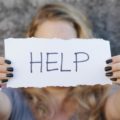
This week, I heard the troubling news that someone I know has become newly bereaved to a loss by suicide. My heart aches to hear this and I’m immediately taken back to those early moments in the wake of losing my dad. I wanted to share some of the most helpful things I learned during those initial days.
- My family and I weren’t alone. We were immediately surrounded with support, encouragement and offers to help – from those we knew and even those we didn’t. Despite the troubling way in which my dad died, it was nice to know we weren’t alone. I soon realized that we also were not the only family who had experienced a loss to suicide. Surprisingly, it is unfortunately more common than I could have imagined.
- There are resources available, if you dig for them. I didn’t know support groups for those bereaved by suicide existed but I was so thankful to discover the Loving Outreach to Survivors of Suicide group in Chicago, as well as books and online support forums when I needed them. The AFSP provides a list of groups elsewhere in the country. Our resources tab lists some additional options.
- Everyone grieves differently. I expected that because I wanted counseling and to attend support group meetings that my mom and brother would, too. That wasn’t necessarily the case for them and I had to accept that. I also liked to talk a lot about what happened whereas they didn’t. We have touched on this in previous blog posts, which you can read about here.
- I took the time I needed even if it was “unofficial.” My bosses told me to “take the time I needed,” but HR reminded me I really only had five days of bereavement time. I felt torn – could I really ask for more time? While I went back to work at the 5-day mark, I knew I couldn’t return at full-throttle and decided I was ok with that. What could people really say about that, given what I had been through? I had a rebuttal ready should anyone approach me about my performance but no one ever did. Maybe I should have given them more credit.
- I let myself “feel all the feelings.” Anger, confusion, embarrassment, shame, hurt, betrayal, worry – you name it, I felt it. I learned it was important to let myself experience all of the emotions that entered my body and not try to stifle them. It became an essential part of my healing process. Sometimes, I would be perfectly fine but would abruptly need to leave a situation because I needed to have a good cry and look at pictures or quickly write down memories of my dad.
- Similarly, I was gentle on myself. I didn’t pressure myself too hard to take up friends’ offers to get together, or to maintain my gym visits or even to wake up at my usual time. I had a pretty good excuse to do what ever I needed to simply get by – and for many weeks, getting by meant staying in bed all day wishing this was all a nightmare.
In my next post, I will share some of the longer-term lessons I’ve learned as a survivor along the nearly four years of my grief journey. What did or have you learned in the early days?




Thanks for this post, which resonates with me.
You wrote “There are resources available, if you dig for them” — that is one of the things that stings the most now. I stumbled on all these suicide prevention / support groups after the fact. (Up until that moment, the support groups we were tuned in to were for family members of bipolar sufferers). At no point during my mom’s initial hospitalization after a first attempt did anyone (law enforcement, medical practitioners, psychiatric counsellors) bring any such resource to the family’s attention. We were left to our own devices to wonder, in our state of shock and bewilderment, how to handle this. My first contact with suicide-related resources was during bereavement (when I searched for these myself). I wonder how true this is for other bereaved survivors. How can we bring this information and support to the forefront when it is needed? Suicide is such a far-fetched, unfathomable notion — no one believes it will actually happen; I don’t think people have the reflex to search for this information, even when someone close to them is deeply depressed; they might instead, like I did, look into support groups and resources for dealing with depression, or bipolar disorder, etc.. Info on suicide prevention (or on how to cope after a “failed” attempt) needs to be handed to them, imposed on them. How can we make sure this happens?
I completely understand, Corinne. I should have specified that there are resources available for those newly bereaved by suicide (like support groups for those of us who have lost someone, or books on suicide grief). I agree with you that resources for those who are battling mental illness or who have attempted are significantly lacking (not only in availability but in awareness).
Thank you for the article. I’d like to mention that when this happened to me, I had no idea how to be “easy” on myself. The suicide of a loved one creates feelings of guilt in just about everybody who is close, because we don’t know any better.
I do know that now, and I’m quick to tell new survivors of that too. That might be the most important lesson I’ve learned, in these past 15 years, since my teenage son took his own life.